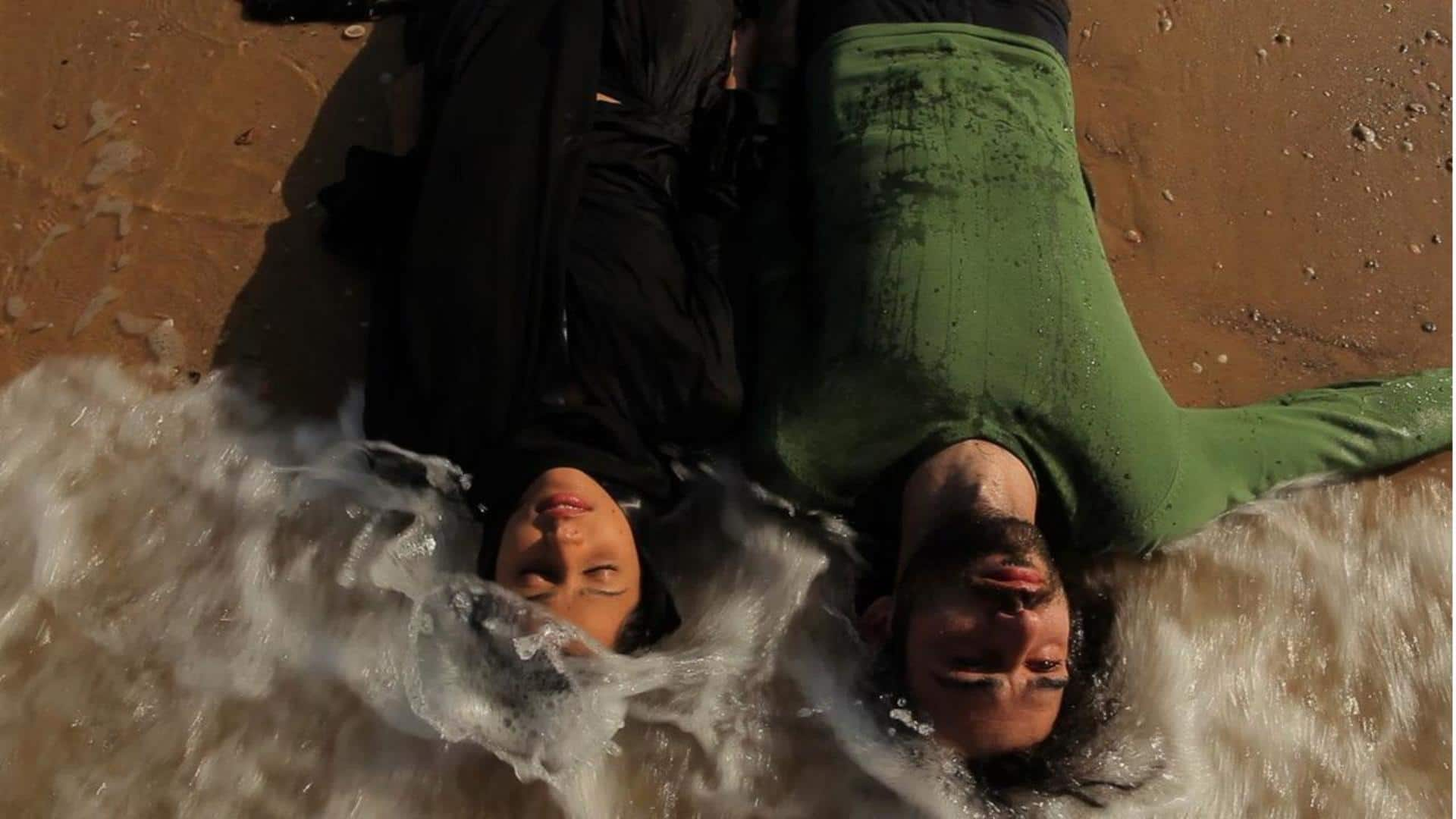
#NewsBytesRecommends: 'Habibi Rasak Kharban' on Netflix—forbidden love in war-torn Gaza
What's the story
Stories about love that is forbidden due to societal complications and morality facades have a certain kind of inherent appeal—they are all the same, and yet, somehow different. Star-crossed lovers are crushed under authority, their voices are smothered, and their love hammered to bits, and such stories often have a wistful closure, if at all. Habibi Rasak Kharban, on Netflix, belongs to this category.
Plot
Folklore of Layla and Majnu at forefront
Habibi Rasak Kharban borrows the folklore of Layla and Majnu and places them in present-day war-torn Gaza, where class differences and societal obligations painfully separate the two lovers. Poetically inclined Qays falls for a headstrong engineering student Layla, but when their student visas are snatched, and they are forced to be locked in their homes in Gaza, their romance dies a painful, slow death.
Characters
Well-developed characters provide strength to drama
One of the most striking aspects is the way the two protagonists are molded. Qays is defined by a pensive air; he quotes the 13th-century poet Ibn Arabi, showcasing how worldly obligations snap his artistic desires. Layla, too, labors to carve her identity through education in a patriarchal society where autonomy and women have never been spoken of in the same breath.
Societal expectations
How do societal expectations snatch away lovers' freedom?
It also brings to the fore the way society has manufactured its set of rules in a manner that ensures the clipping of one's wings. Layla is "pretty," so she should marry a rich man and "settle down." Qays is no match for her "class" since he lives in a refugee camp and works at a construction site. Apparently, even in love, commercials matter.
Moral policing
Moral policing abounds shamelessly in Gaza
There is rampant, unapologetic, and unabashed moral policing that doesn't let the lovers even catch a breath at a beach, and it is startling to see ambassadors of "culture" and "ethics" rudely chase the couple away. It goes on to show how love, when set against a distressing social fabric, suffers in multiple ways. No respite at home and absolutely none outside of it.
Horror of war
Horrors of war also seep into drama
Amid these conflicting desires and squashed aspirations, ample space is also given to the impact of war in Gaza and the way it has come crumbling down, quite literally, in the wake of the war. In one scene, Layla's brother's friend is shot by Israeli shooters, which further lends this melancholic, visceral film an even more somber feel. It is way too palpable.
Verdict
Watch 'Habibi Rasak Kharban' on Netflix today
The Susan Youssef directorial may have been released a decade ago, but its issues, unfortunately, mirror our own. Its locations and background score uplift the atmospheric tension—and the film is quite unlike mainstream cinema. It doesn't allow an escape from reality but instead emboldens us to question our surroundings. Eventually, it's a tale of fervently passionate love sacrificed on the altar of societal pressure.